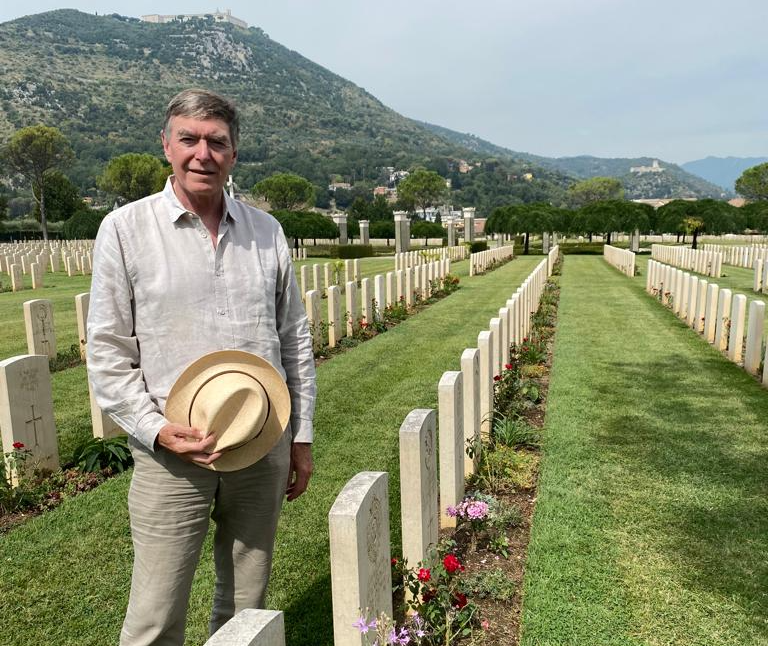Last month, in my role as a Commonwealth War Graves Commissioner, I joined a delegation on a visit to war grave sites in Italy, eighty years after the first Allied landings on mainland Europe presaged the end of WW2.
We saw some of the impressive work being undertaken to ensure those who made the ultimate sacrifice in the two World Wars are remembered and honoured by future generations.
It is impossible to walk among the immaculate rows of white headstones and not be moved. As time moves on, and living memory moves to becoming history, such a tangible reminder of the human cost of war is important as we seek to impress upon younger people the sacrifices of previous generations.
For those not aware, the Commonwealth War Graves Commission was founded in 1917, and its mission is to commemorate the nearly 1.7 million Commonwealth servicemen and women who died in the two World Wars, along with the countless others who perished in subsequent conflicts. The Commission operates in 153 countries and territories, ensuring that the final resting places of those who fought and died are well maintained and that their stories continue to be told.
By my estimation there are around 65 CWGC grave sites in South Shropshire, spread all across the constituency. Details of all of these sites, including the names of those commemorated, can be found at the very useful CWGC website: www.cwgc.org. I would encourage readers to find out their nearest site, perhaps in the lead up to Remembrance Sunday next month. The CWGC is always looking for volunteers to help maintain the more isolated graves and the website gives details of how to volunteer to look after a grave near you.
The Commonwealth War Graves Commission draws its Commissioners from political, diplomatic, academic and military figures, from across the Commonwealth nations. I was appointed a Commissioner in 2019 and have been joined on the Commission by senior military officers from each service, with an admiral from the Royal Navy recently appointed as new Vice Chairman, being joined by a senior British Army general and Royal Air Force air marshall this summer, with each of whom I had worked when at the Ministry of Defence.
While known for the upkeep of grave sites, the CWGC's work extends beyond the confines of cemeteries and memorials. Through research and documentation, it seeks to ensure that every individual's story is known and appreciated – reminding us that behind every headstone is a life that was lived, and a family that grieved.
As custodians of a large amount of outside space, the Commission also has an interesting role to play in pioneering horticultural excellence around the world. Certainly in the larger Commission maintained sites, such as those I visited on my trip, the beautifully maintained gardens and landscaping adds to the tranquil and contemplative atmosphere of rows of headstones and names etched in stone. It is a fitting tribute to those who gave their lives for a more peaceful world. As my own small act of commemoration I was able to plant a rose in the Cassino cemetery, near the graves of those I presumed had fought with my late father-in-law in the Italian campaign in the autumn of 1944 when two battalions of the Scots Guards had landed at Salerno in September 1944, steadily fighting their way up the Apennines to Rome.
My role as one of only two parliamentarian Commissioners of the Commonwealth War Graves Commission is an immense honour and a privilege. The work we do is not just about maintaining graves - it is about preserving the memory of those who paid the highest price for our freedom, ensuring their stories are told and their sacrifices are never forgotten.
Photo: Visiting Commonwealth War Graves Commission cemetery at Cassino with MonteCassino behind

